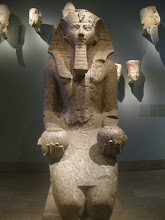In Palestine, there's a word that can close doors in your face or even kill your career like nothing else:
تطبيع
Or normalization.
The term is not exactly a hundred percent clear, because I daresay it means different things to different people. But the general idea is that it refers to normalizing relations with Israelis. If this is done in times when Israel is still occupying Palestinian lands, imprisoning Palestinian children, shooting peaceful demonstrators at close range in their heads, arresting people during nightly raids in people's homes, restricting movement of people and goods, denying Palestinians water, confiscating land, building illegal settlements... and generally making life as impossible as they can for Palestinians, then normalization is not a good thing.
Some might think normalization is wrong under these circumstances, but okay if the occupation ended. Some want absolutely nothing to do with Israelis at all, maybe because they've lost their sons, their fathers, or their brothers or sisters in the name of the security of the Israeli state.
What exactly constitutes normalization, however, is like I mentioned not completely clear. Some say you cannot have any relations at all with Israelis, others think dialogue is acceptable because it can help changing the way Israelis see the conflict, maybe make them understand what they are collectively putting the Palestinian people through.
The organization I work for, is accused of normalization.
We have a project together with an Israeli organization (whose director, I may add, is a Palestinian from 1948 - a shorthand for that part of Palestine that was declared as Israel in 1948) that is aimed at creating change through dialogue and joint meetings between Israeli Jews, Palestinians from 1948, and Palestinians from 1967 (the remaining parts of Palestine that was occupied in 1967).
We do this because we (the organization, I mean) think it is important that especially Israelis come in contact with Palestinians from 1967 in other situations than as soldiers at the checkpoints; that they get a chance to understand how their government's policies affect the lives of millions of Palestinians on a daily basis; that they understand that the version they get to hear about the conflict is not necessarily true.
And also a little bit because we think it's important for Palestinians to understand the Israeli version.
The idea is that dialogue could serve as a step on the way to creating change in both societies.
But it's difficult to recruit participants to this program. Some want to take part, but get threatened by their unions. Others would like to take part, but understand they would kill their careers if they did. Many don't want to have anything to do with the program because it is seen as normalization.
A part of me agrees. Have I not repeatedly advocated boycott, divestment and sanctions against Israel? (Yes, I have, and I still do).
Another part of me thinks we have to open up a dialogue or we will never find our way out of this situation.
But when I write project proposals with another Israeli organization we might work together with in the future, and they can't even acknowledge that what is their independence war, is Palestine's ultimate colonization war... I see we have a long way to go.

تطبيع
Or normalization.
The term is not exactly a hundred percent clear, because I daresay it means different things to different people. But the general idea is that it refers to normalizing relations with Israelis. If this is done in times when Israel is still occupying Palestinian lands, imprisoning Palestinian children, shooting peaceful demonstrators at close range in their heads, arresting people during nightly raids in people's homes, restricting movement of people and goods, denying Palestinians water, confiscating land, building illegal settlements... and generally making life as impossible as they can for Palestinians, then normalization is not a good thing.
Some might think normalization is wrong under these circumstances, but okay if the occupation ended. Some want absolutely nothing to do with Israelis at all, maybe because they've lost their sons, their fathers, or their brothers or sisters in the name of the security of the Israeli state.
What exactly constitutes normalization, however, is like I mentioned not completely clear. Some say you cannot have any relations at all with Israelis, others think dialogue is acceptable because it can help changing the way Israelis see the conflict, maybe make them understand what they are collectively putting the Palestinian people through.
The organization I work for, is accused of normalization.
We have a project together with an Israeli organization (whose director, I may add, is a Palestinian from 1948 - a shorthand for that part of Palestine that was declared as Israel in 1948) that is aimed at creating change through dialogue and joint meetings between Israeli Jews, Palestinians from 1948, and Palestinians from 1967 (the remaining parts of Palestine that was occupied in 1967).
We do this because we (the organization, I mean) think it is important that especially Israelis come in contact with Palestinians from 1967 in other situations than as soldiers at the checkpoints; that they get a chance to understand how their government's policies affect the lives of millions of Palestinians on a daily basis; that they understand that the version they get to hear about the conflict is not necessarily true.
And also a little bit because we think it's important for Palestinians to understand the Israeli version.
The idea is that dialogue could serve as a step on the way to creating change in both societies.
But it's difficult to recruit participants to this program. Some want to take part, but get threatened by their unions. Others would like to take part, but understand they would kill their careers if they did. Many don't want to have anything to do with the program because it is seen as normalization.
A part of me agrees. Have I not repeatedly advocated boycott, divestment and sanctions against Israel? (Yes, I have, and I still do).
Another part of me thinks we have to open up a dialogue or we will never find our way out of this situation.
But when I write project proposals with another Israeli organization we might work together with in the future, and they can't even acknowledge that what is their independence war, is Palestine's ultimate colonization war... I see we have a long way to go.


















No comments:
Post a Comment